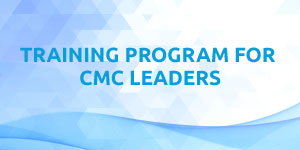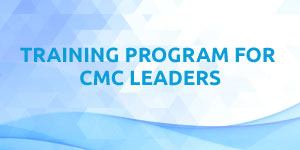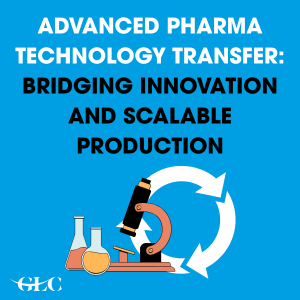Free knowledge to monitor the world of events. Have a look at our must read Blogs on Pharma, Finance, HR, Health and Cross Industry.
Advanced Pharma Technology Transfer: Bridging Innovation and Scalable Production
2022-08-16
APTT has evolved to become a cornerstone of innovation, productivity, and global healthcare access
Technology transfer in today's rapidly evolving pharmaceutical era is more than just the transmission of manufacturing instructionsit's a critical activity to make life-saving medicines run seamlessly from the laboratory bench to large-scale manufacture. As advanced manufacturing techniques, complex biologics, and precision medicine rose to the scene, Advanced Pharma Technology Transfer (APTT) has evolved to become a cornerstone of innovation, productivity, and global healthcare access.
What is Advanced Pharma Technology Transfer?
Pharma technology transfer is the process of transferring product and process know-how from development through manufacturing, or manufacturing sites. The "advanced" component entails:
- Advanced process optimization platforms (e.g., predictive modeling with AI)
- Global collaboration-enabled real-time data sharing platforms
- Embedded quality-by-design (QbD) principles to mitigate risk
- Scale-up bioprocesses for faster market readiness
These innovations guarantee that critical drug productseither biologics or small moleculesmaintain levels of safety, quality, and efficacy even when manufacturing on a mass level.
Why APTT Matters in the Current Pharma Ecosystem?
- Faster Time-to-Market
Sftec's revolutionary transfer technology reduces commercialization time, a critical enabler of competitive positioning and patient access, especially during periods of global health crises. - Consistency Across Global Sites
Existing transfer processes utilize centralized digital libraries and standardized documentation to ensure uniform product quality regardless of manufacturing location. - Risk Mitigation
With advanced analytics, companies are able to foresee potential bottlenecks or deviations ahead of their occurrence, thus avoiding costly delays. - Regulatory Compliance
Regulatory agencies like the FDA and EMA emphasize careful, data-based transfer operations. Advanced technologies facilitate ease of compliance documentation and auditing.
Key Components of Advanced Pharma Technology Transfer
1. Knowledge Management Systems - Validated, cloud-based systems enable secure sharing of process documents, validation protocols, and equipment specifications among stakeholders.
2. Digital Twins & Simulation - Digital twin technology allows manufacturers to simulate production in a virtual environment before doing it in real lifeenabling identification and resolution of potential issues.
3. PAT (Process Analytical Technology) - Real-time monitoring systems provide continuous feedback during manufacturing to maintain parameters within validated ranges.
4. Cross-Functional Collaboration - Successful transfers involve R&D, manufacturing, quality assurance, and regulatory teams working in concert with one another, often across continents.
Challenges in Advanced Technology Transfer
- Data Security: Transporting sensitive product data globally requires robust cybersecurity measures.
- Cultural & Communication Barriers: Multinational operations may be plagued by disparities in time zones, language, and work culture.
- Equipment Compatibility: Differences in manufacturing machinery across locations can make costly modifications.
- Regulatory Variations: Each location may have unique requirements, so it requires keen planning.
Best Practices for a Successful Advanced Transfer
- Early Engagement of Manufacturing Groups Engage manufacturing groups early in development to align for scale-up needs.
- Cautious Risk Analysis Use tools like FMEA (Failure Mode and Effects Analysis) to locate and avoid risks.
- Global Templates Adhere to global templates for documentation and SOPs to avoid misinterpretation.
- Extensive Training Programs Train receiving site staff with theory and practice sessions.
- Continuous Improvement Loop Collect feedback following each transfer to improve processes in the future.
The Future of Advanced Pharma Technology Transfer
Emerging technologies like AI-optimized process improvement, blockchain-backed secure data transfer, and continuous manufacturing will further revolutionize how pharmaceutical companies handle tech transfers. These technologies have the potential to speed up timelines, bring in more transparency, and get drugs to patients faster than ever.
In a company whose every day can be a matter of life or death, Advanced Pharma Technology Transfer is not merely a technical necessityit's a strategic enabler of global health.
Final Thought
As pharma products become more complex, the companies that master advanced technology transfer will be the ones leading the next wave of innovation, patient trust, and market success.
Do you want to understand more? Join our upcoming Advanced Pharma Technology Transfer Masterclass
By Shara Najimudeen, Digital Marketing Executive, GLC Europe, Colombo Office, Sri Lanka.
Get a feel for our events

Training Program for CMC Leaders - EU edition
14th September 2026 - 09th April 2027
Rich with practical insights and real-world applications
learn more >>
Training Program for CMC Leaders - US edition
14th September 2026 - 09th April 2027
Rich with practical insights and real-world applications
learn more >>
Advanced Stability Testing of Pharmaceuticals MasterClass - US edition
24-27 February, 2026
Increase the likelihood of studies receiving regulatory approval
learn more >>













